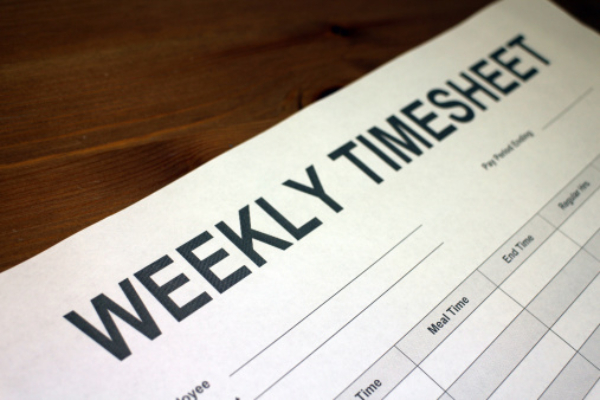
When New York employers fail to preserve accurate payroll and time records, disputes over unpaid overtime turn on the credibility of the employee’s evidence. Courts in both New York and federal wage and hour cases apply well-established burden shifting rules that favor employees when employers disregard recordkeeping obligations. This article explains those standards under New York Labor Law and the Fair Labor Standards Act, and how employees can establish overtime claims even when no employer records exist.
Accurate time and payroll records are required by both New York and federal law. At Rapaport Law Firm, our Manhattan-based employment lawyers represent employees in overtime and wage disputes across New York. Employers are required to create and retain accurate time records, and courts treat those duties seriously in wage and hour litigation.
At Rapaport Law Firm, PLLC in Manhattan, we represent New York City employees in overtime and wage disputes in state and federal courts. Accurate payroll and time records are central to every wage and hour case because they document the hours worked and the compensation owed. When employers do not maintain or produce those records, litigation becomes a contest of credibility and inference rather than documents. Rapaport Law Firm's staff is experienced at guiding our clients on how to gather and preserve evidence, including text messages, emails, and other records that demonstrate they worked overtime for which they were not paid premium rates.
6 years: payroll records. New York State requires employers to maintain accurate payroll records for at least six years. This includes each employee’s hours worked, gross wages, deductions, and net wages.
3+ years: Fair Labor Standards Act (FLSA). Employers must retain accurate payroll records for the period of an employee’s employment plus three years. See the U.S. Department of Labor fact sheets for the federal regulations in 29 CFR Part 516: U.S. DOL Fact Sheets.
New York state and federal courts follow the rule that in wage and hour cases, the employer bears the burden of producing evidence of the precise amount of work an employee performed. When an employer does not comply with recordkeeping obligations and cannot produce accurate records, the burden of proof shifts in favor of the employee. Practically speaking, this means an employee may rely on a reasonable recollection of hours worked to prove their case. As United States Magistrate Judge Cheryl L. Pollak explained in Nasir v. Khokon, 2024 U.S. Dist. LEXIS 153096 (E.D.N.Y. Aug. 23, 2024):
“Under both federal and state laws, defendant-employers have an obligation to keep records, and by virtue of defendants’ default, plaintiffs’ recollection and estimates of hours worked are presumed to be correct.”
Earlier this month, in a wage and hour decision issued on October 9, 2025, in Baharona v. Paradise Tree Serv. & Landscape Corp., a New York federal court summarized the negative consequences that an employer who fails to keep accurate wage and hour records faces when an employee brings a case for unpaid wages in New York:
When an employer fails to maintain accurate and complete records of the hours employees work and the amounts they are paid, the plaintiff employee need only submit sufficient evidence from which violations of the FLSA and the amount of an award may be reasonably inferred. The burden then shifts to the employer to come forward with evidence either to show the precise amount of work performed, or to negative the reasonableness of the inference to be drawn from the employee's evidence. Kuebel v. Black & Decker Inc., 643 F.3d 352, 362 (2d Cir. 2011). If the employer fails to produce such evidence, the court may award damages to the employee, even though the result may be only approximate.
The foregoing legal standard for proving overtime hours was applied earlier this year, in a February 12, 2025 decision by a federal court in Brooklyn. The court in Brooklyn held that a plaintiff met her burden of proving the number of hours that she worked by testifying to the approximate number of hours she worked, on average, each week. The Brooklyn court cited Anderson v. Mt. Clemens Pottery Co., 328 U.S. 680 (1946), a landmark U.S. Supreme Court case that cautions courts not to make proving hours an impossible hurdle for the employee. The Court in Mt. Clemens Pottery Co. recognized that employees are not expected to prove the precise extent of uncompensated work when an employer has failed to keep proper records; instead, a reasonable inference drawn from credible evidence is sufficient to establish liability.
Based on our experience representing workers in New York state and federal courts for more than thirty years, the following materials often help establish the number of hours worked in a given week or other period:
Even if formal timecards are missing, these materials may support a reasonable estimate of the hours you worked in New York City.
To be clear, even if you do not have these records, you can establish the number of hours you worked—and for which you were not paid—through your own testimony. Many of Rapaport Law Firm’s overtime clients have proven their hours solely through their own recollection, without additional documents. We guide our clients through this process and use the burden-shifting framework established in Mt. Clemens Pottery Co. to their advantage. Our firm has the experience and skill to turn these principles into successful results for employees across New York.
If you were not paid one and one half times your regular rate for overtime hours in New York, speak with our NYC wage and hour team about your rights and the steps needed to recover unpaid wages. We have represented New Yorkers in wage and hour matters for decades and understand how courts treat missing records.
This article is for general information only and is not legal advice. Outcomes depend on specific facts. If you have questions about your situation, please contact our office.
Call: 212-382-1600
Address: 80 8th Ave, Suite #206, New York, NY 10011